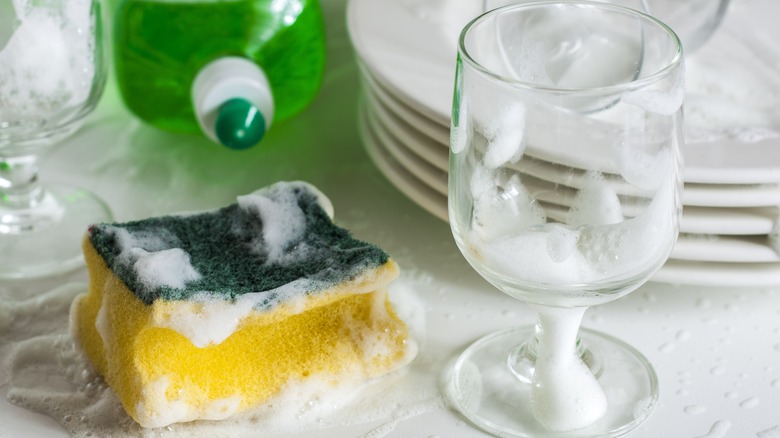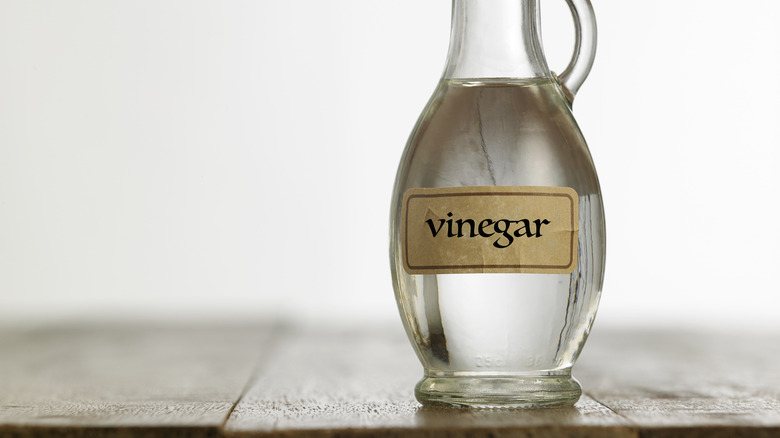The Real Reason Your Kitchen Glasses Get Cloudy
Cloudy, filmy, milky-looking glasses fresh out of the dishwasher can raise an eyebrow. The only thing worse is when they're cloudy after the TLC of being hand-washed. Cloudy-looking glasses are an embarrassing eyesore. You don't want to put those less-than-clean-looking vessels in your kitchen cabinets, let alone offer someone a glass of orange juice or goblet of wine to drink from one. But to rid yourself of this disastrous effect and implement a remedy so your glasses are sparkling and crystal clear, you first must understand the cause of why your glasses are a cloudy mess in the first place.
According to several sources, including The Kitchn, if you find your favorite highballs and tumblers covered in a cloudy film, it is probably due to one of two things. You either have hard water, or your glasses have fallen victim to something called etching — when the glass material naturally wears away as a result of everyday use and washings.
The first suspect — hard water — is the more likely cause of your troubles. The Spruce shares that hard water doesn't rinse the soapy suds as well as soft water, but hard water also requires you to use more soap to clean your glasses, which can lead to more of that cloudy build up. How do you know if hard water is the offender?
One solution: Soak your glasses in vinegar
The Spruce suggests taking your glasses that are engulfed in the cloudy film and soaking them in vinegar for five minutes. If the glass turns back to its crystal-clear brilliance, then you know hard water is your problem. What can you do once you determine your water is hard, aside from taking out stock in vinegar? The Spruce says you can try adding more soap, but finding just the right amount to add may be more of a trial-and-error project. They also suggest adding a rinsing agent which can help eliminate both spots and clouding of glasses.
Another possible fix involves checking on the temperature of your water. They note that you want the water to be at least 130 degrees Fahrenheit and no hotter than 140 degrees Fahrenheit.
But if hard water is not your problem, then it is most likely etching. Etching is a more difficult fix because the hard truth is you really can't fix it. Etching, which looks more like a cloud of scratches, is a result of normal washing that can happen with soft or hard water. The Spruce explains that with etching, it's really about prevention. There are several adjustments you can make to your glass cleaning process. Their suggestions include skipping the prewashing, or at least doing so with less vigor; using a little less soap when you wash your glasses; or simply switching your dishwashing detergent until you find one that gives you the proper results.

